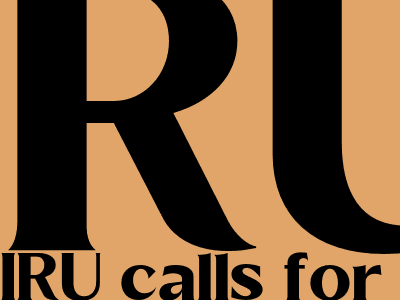
IRU Calls for Technology Openness in CO₂ Emission Standards Revision
Global Road Transport Body Urges Holistic Policy Reforms to Decarbonize Heavy-Duty Vehicle Sector
IRU, the World Road Transport Organisation, is advocating for a technology-neutral approach in the revision of CO₂ emission standards for heavy-duty vehicles (HDVs).
In a recent statement, IRU highlighted the need for policymakers to adopt a holistic perspective that considers the full range of available technologies, including diesel, natural gas, biofuels, and electric powertrains, to effectively reduce greenhouse gas emissions from road transport.
The revision of CO₂ emission standards for HDVs is a critical step in the global efforts to mitigate climate change, as the sector accounts for a significant share of transport-related emissions. However, IRU emphasizes that a narrow focus on specific technologies could hinder innovation and limit the industry's ability to meet decarbonization targets.
IRU's call for technology openness is supported by a comprehensive analysis of the sector's challenges and opportunities. The organization's position paper highlights the need for a balanced mix of technology pathways tailored to the specific needs of different regions and transport applications.
Diesel engines, with ongoing improvements in efficiency and the use of renewable fuels, continue to play a vital role in the decarbonization transition. Natural gas and biofuels offer immediate CO₂ reduction benefits, while electric powertrains, including battery-electric, fuel cell, and plug-in hybrid technologies, hold significant long-term potential.
IRU believes that a technology-neutral approach will foster competition, drive innovation, and accelerate the development and deployment of the most effective solutions. This will ensure that the industry meets its decarbonization goals in a cost-effective and sustainable manner.
Key Recommendations:
- Adopt a technology-neutral approach in the revision of CO₂ emission standards for HDVs.
- Consider the full range of available technologies, including diesel, natural gas, biofuels, and electric powertrains.
- Encourage the development and deployment of innovative solutions that optimize energy efficiency and reduce emissions.
- Promote a holistic approach that addresses the entire transportation system, including infrastructure, logistics, and operational practices.
- Engage with industry stakeholders in a collaborative effort to drive the decarbonization of the heavy-duty vehicle sector.
Conclusion:
IRU's call for technology openness in the revision of CO₂ emission standards is a forward-looking and pragmatic approach that will help the road transport industry achieve its decarbonization goals. By embracing a holistic perspective and fostering innovation, policymakers can create an enabling environment for the development and deployment of the most effective technologies, ultimately contributing to a sustainable and low-carbon future.
For more information, visit the IRU website at www.iru.org.